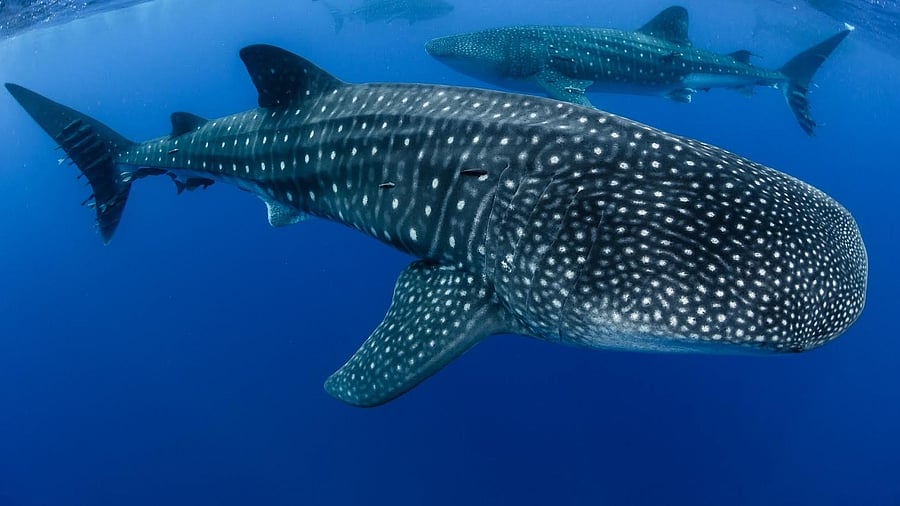
Whale Shark
Mumbai: Wildlife Trust of India (WTI) presented the success story of conservation of Whale Sharks — working in partnership with government bodies, private partners, and coastal communities — at the World Conservation Congress 2025 in Abu Dhabi.
The comprehensive report — “Conserving India’s Gentle Giants: Whale Shark Conservation Project 2002–2025” —-highlights a pioneering multi-stakeholder approach to marine conservation over the past two decades.
Launched in 2002, WTI’s Pan Indian Whale Shark Conservation Project works in partnership with government bodies, private partners, and coastal communities, and has successfully facilitated the rescue and release of over 1,000 whale sharks (Rhincodon typus) accidentally caught in fishing nets along the Indian coastline to date, reflecting a major shift in fisher attitudes from hunting to protection.
The report also celebrates the species’ legal foundation for survival: in 2001, the species gained legal protection under the Wild Life (Protection) Act, 1972, which prohibited its hunting and trade. Furthermore, India demonstrated Global Leadership by supporting the
international protection of the species under CITES in 2002.
At the heart of this success is the Gujarat Whale Shark Campaign, launched in 2004—a unique collaboration among government bodies, NGOs, corporate partners, and even spiritual leaders, which fostered a sense of cultural pride, turning the whale shark into a celebrated “daughter of the sea”.
This approach has been successfully replicated in high-risk zones, such as Kerala and Lakshadweep, where campaigns have facilitated the release of 50 whale sharks along the Kerala coastline over the past seven years.
Based on surveys across 118 whale shark landing sites, the report notes a steep decline in direct hunting but identifies accidental entanglement in gillnets as the primary ongoing threat—particularly in Sourashtra, Malvan, Netrani, Krishna and Kakinada, Kerala and Lakshadweep. Awareness gaps about the 2001 fishing ban remain in some states, like Goa, where the project has recently been initiated. The report provides a clear strategy to nationalise the successful conservation model through expanded outreach, stronger local stewardship by integrating traditional and scientific knowledge, and cross-sectoral collaboration to protect marine biodiversity while supporting coastal livelihoods.
The report was released at the event by Vivek Menon, IUCN Councillor and Executive Director of WTI, along with Dr. Rima Jabado, Chair of the IUCN SSC Shark Specialist Group, Prof. B. C. Choudhury, Senior
Advisor at WTI, Azzedine Downes, President and CEO, IFAW- International Fund for Animal Welfare and Dr. Dhriti Banerjee, Director, Zoological Survey of India.
“This is a 20-year story of collaboration — spiritual leaders, local communities, scientists, and conservationists working together to bring a species back. Policy and data are important, but people protect what they value. When communities, culture, and conservation align, recovery becomes possible,” said Menon.
“In two decades of collaborative efforts of community, enforcement agencies, conservation science and corporates, the Whale Shark Conservation model has more than adequately emphasised that an integration of multiple sectors is important to conserve a marine mega fauna,” added Choudhury.
“The conservation reference series reflects the shared effort, knowledge, and dedication that define India’s conservation journey. It is a tribute to every individual working to secure our nation’s wildlife conservation,” noted Saymanti B, Assistant Manager and OIC, WTI.